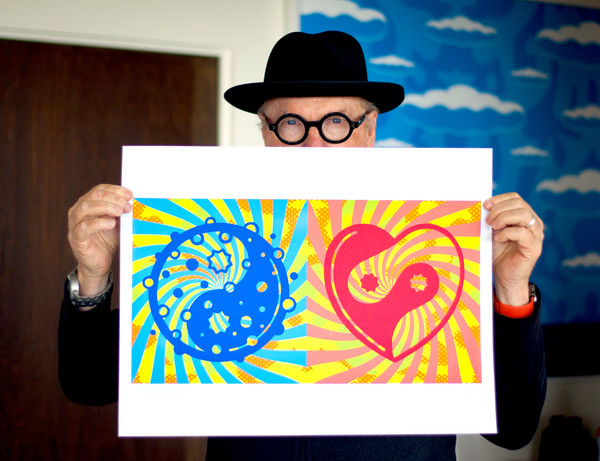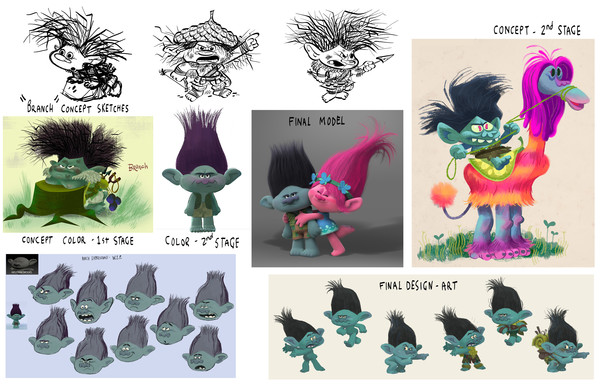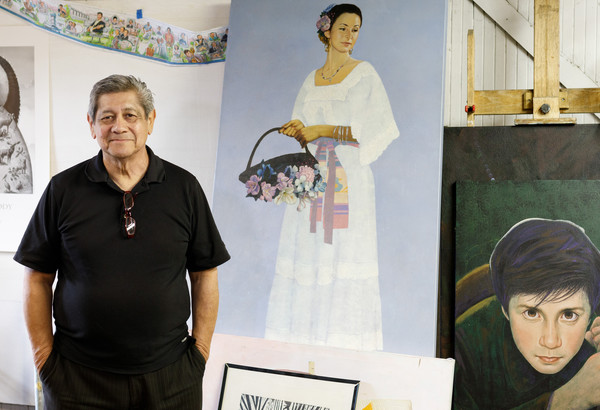feature / students / president / art / transportation-design / sponsored-projects
February 22, 2017
Writer: Solvej Schou
Photographer: Juan Posada
SEEKING SOLACE: THE TRAVEL BAN’S IMPACT ON ARTCENTER STUDENTS
Inside Graduate Art student Delbar Shahbaz’s South Campus art studio, several of her smaller sculptures—with pale birdlike bodies and human-looking heads—line a high shelf. A quote by British artist Tracey Emin declaring “Love is what you want” is scrawled in big black letters on a wall. In the corner, on a hot plate, sits a tea kettle, trailing fresh steam.
The studio is a safe space for the 38-year-old, who moved to the United States from her native Tehran, Iran in 2013, and started at ArtCenter in 2015. It’s a zone where Shahbaz—who has a green card and is set to graduate this term—can think, imagine, work and feel free.
That feeling of freedom changed on January 27 for Shahbaz and Iranian Transportation Design student Ehsan Momeninejad they said. That day President Donald Trump issued an executive order—currently blocked by federal courts—banning citizens from Muslim-majority countries Iraq, Syria, Iran, Libya, Somalia, Sudan and Yemen from entering the U.S. for 90 days. Shahbaz’s sister, a Canadian citizen in Vancouver, was about to give birth to a son. Their parents live in Iran.
“I really want to go and see my sister, to help her, but I’m afraid. What if they don’t let me come back?” said Shahbaz, drinking tea in her studio. “I’ve already built my career here. I’m teaching an ArtCenter at Night sculpture class in the summer. I was feeling, with this order, ‘I’m alone, and I don’t have any land.’ Until then, I thought the U.S. was my land.”
Shahbaz and 27-year-old Momeninejad—who has a student visa—both protested at Los Angeles International Airport the day after the executive order was announced. News surrounding the order, and an updated one reportedly in the works, has shifted week by week. Momeninejad had intended to visit his parents and sister in Tehran in April, and now doesn’t want to risk going back and not be able to return to finish his degree, he said. Shahbaz has thrown herself into her work, seeking solace from ArtCenter faculty.
What makes America great is all the immigrants who come here with a dream, and work as hard as they can to make that dream come true.”
Ehsan Momeninejad

“The co-chair of the department and some teachers sent me an email saying they had my back and that I could come and talk,” said Shahbaz. “I was able to cry in front of them. It was a good feeling. This community has helped me to be myself, and they appreciate me for who I am, which is what I’ve been searching for my entire life. ArtCenter supports your culture and your religion, and people learn from each other.”
Shahbaz sent her parents a statement by ArtCenter President Lorne M. Buchman that he had emailed to students, faculty and staff on January 30 in response to the executive order.
“I want to stress in particular our commitment to our Muslim students, faculty and staff,” wrote Buchman, adding that the College would do all it reasonably could to protect international students, faculty and staff and to provide whatever resources it could to the campus’ global community.
“We will not stand idly by while others suffer, especially when it is within our power to work toward change,” Buchman wrote in the statement, which also confirmed that the Board of Trustees had approved a Resolution representing the College’s position and principles of diversity, inclusion and non-discrimination.
According to recent statistics, 28 percent of new Fall 2015 undergraduate ArtCenter students were international students.
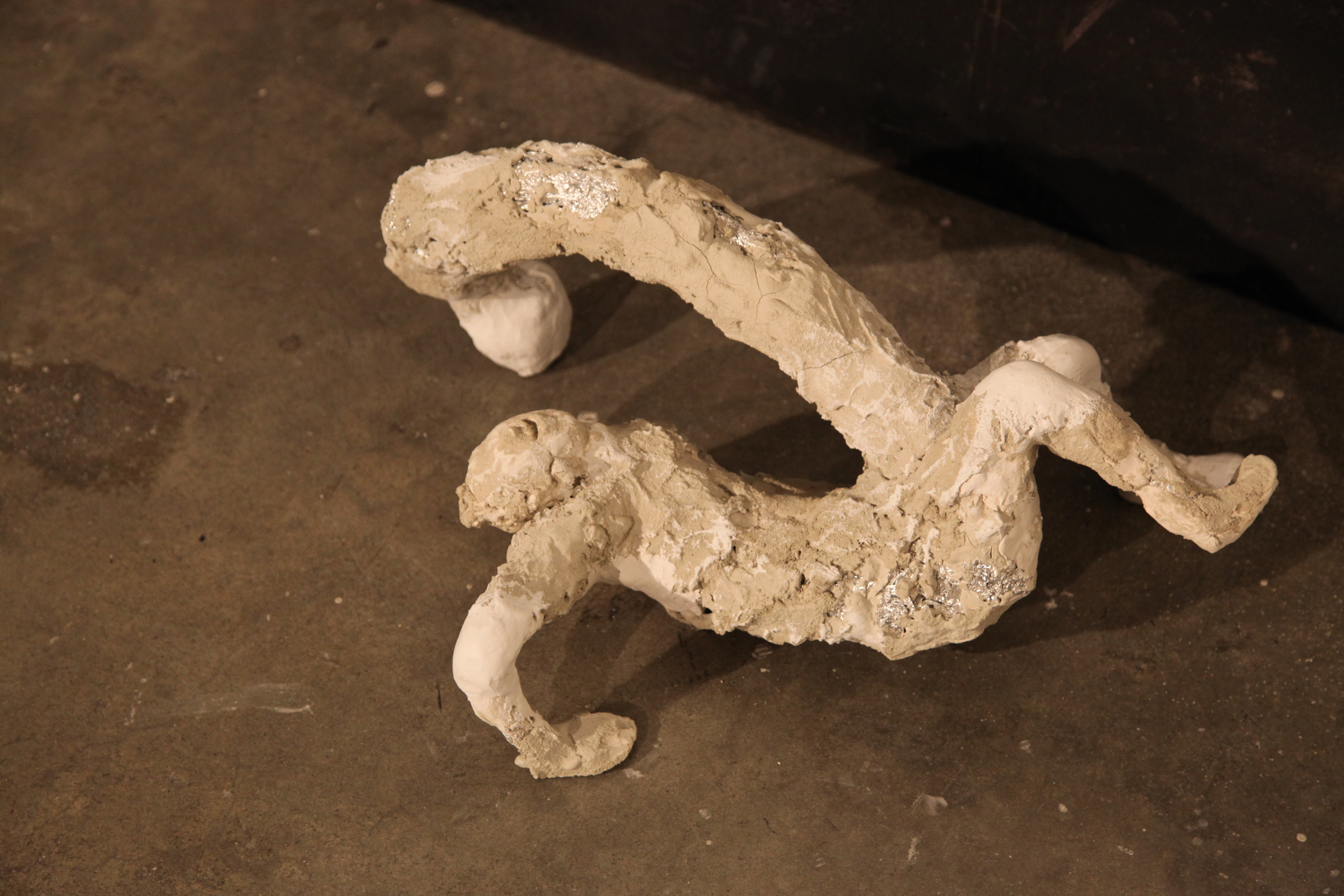

Diversity and inclusion appeal on both a personal and an artistic level to Shahbaz.
Her paintings, sculptures, videos and installations revolve around cultural and gender identity, and women living in patriarchal societies, she said. Welding has become especially cathartic for the artist, who also has a master’s degree in illustration and a bachelor’s degree in biomedical engineering, both from Iran.
Her final show project will include a massive, 8-foot-tall metal female sculpture called The Monumental Fertility covered with a dozen breasts made out of knobby tea pot lids from Iran. Metal feathers chiseled by an Afghan undocumented teen immigrant Shahbaz knows in Tehran will jut out of the sculpture’s enormous, gaping resin womb. Most of her weighty, powerful sculptures have several layers: metal, resin, foam, fiber, clay and paint.
“I really want to work with metal, with heavy material, which is harsh, which is dangerous, and work with fire, because I’m angry right now,” she said. “Even though I feel more alone, I also have energy.”
A similar drive fuels Momeninejad, who started his Transportation Design studies in Spring 2014, and has an undergraduate degree in mechanical engineering from Tehran.
Getting to the College took about five years, he said. He had to first learn English, and then work on his portfolio. Since Iran doesn’t have a U.S. embassy, he went to an embassy in Dubai in the United Arab Emirates to apply for his initial student visa. His current multi-entrance student visa expires in April.
“When I first started ArtCenter, it was hard,” said Momeninejad, soft spoken, sitting at an outside Café table on the Hillside Campus. “I didn’t have any friends. I don’t have any family here. I was alone, all by myself.”
Now Momeninejad not only has friends from various backgrounds, but also a California driver’s license, a place to live in Pasadena and an affinity for downtown L.A. and different kinds of food.
“People in California are so diverse, and embrace immigrants,” he said. “After the executive order was announced, all of my friends were texting me, and worried about me. One friend, a classmate, texted me and said, ‘Dude, you’re always welcome to my house.’"
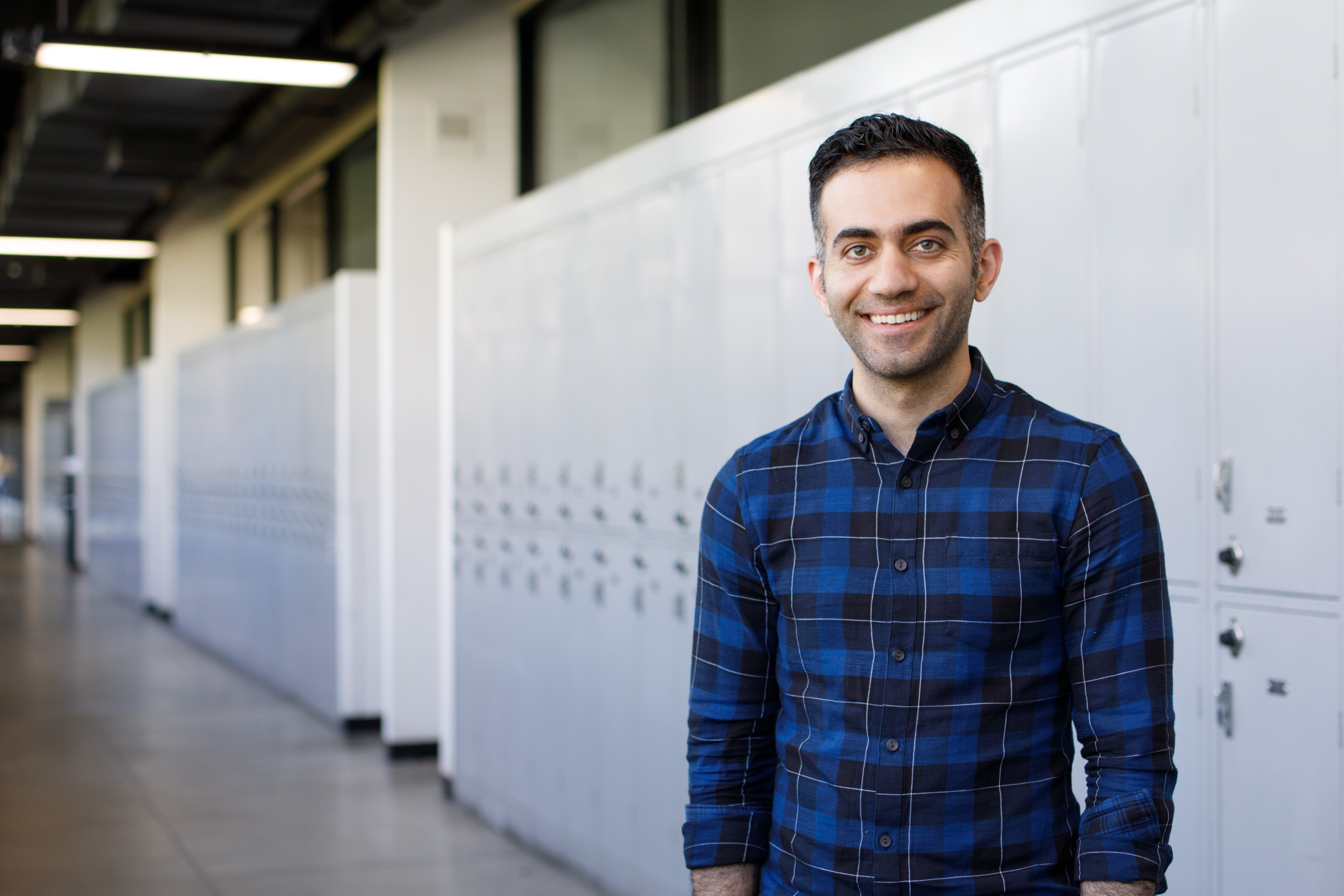
A passionate car fan since he was 10—he would read car magazines in Tehran, and visit show rooms, coveting Ferraris and Lamborghinis—Momeninejad fell in love with concept cars, and had his eye on exterior design. For a Fall 2016 sponsored project with GM, he designed a cargo vehicle showcasing storage compartments such as a side panel that can convert into a billboard.
At a time when many Transportation Design students are applying for internships in countries such as Germany, Japan and China, Momeninejad feels that overseas internship opportunities to him are lost since he wouldn’t be allowed to return, if a ban is in place.
He had also thought that after graduation, he would have the option of getting a student work visa, to work in the U.S. for a year and a half, and then the possibility of a company-sponsored H-1B work visa.
“Even if a company wants to sponsor you, they can’t, with this executive order,” he said. “All this makes my future, the dream I’ve had all my life, fuzzy right now. Just because I’m from Iran shouldn’t impact my life like this. What makes America great is all the immigrants who come here with a dream, and work as hard as they can to make that dream come true.”




